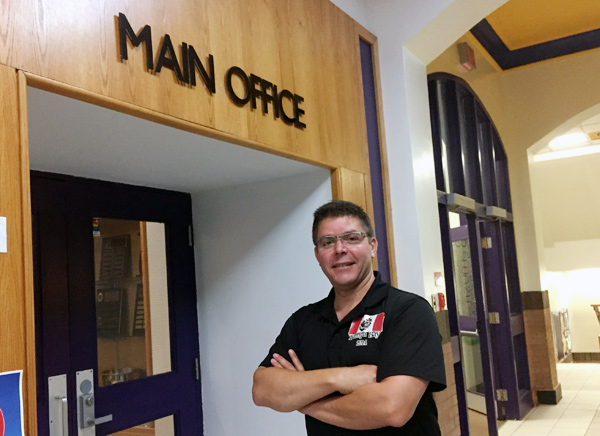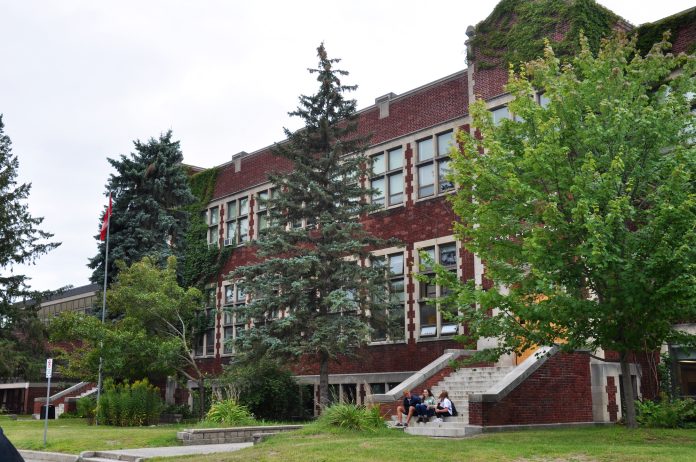By Jared Davidson –
For students attending Nepean High School, September will bring more change than the usual return to pencils and books. The school has a new principal, and he intends to bring renewed focus to the success of the nearly fifteen-hundred students he will oversee. Renald Cousineau is a veteran principal who, after four years as the Student Success Lead at Curriculum Services, is looking forward to a return to the front lines of education.

“I find a lot of inspiration in students,” says Renald. “I often say that I get to work with the future day in, day out.”
Renald is anything but a principal’s principal. His view of his new role is informed by his student-focused philosophy of education. He shuns the authoritarian governing style typical of the principals he remembers from his childhood, preferring to see himself as a student ally, working to help them achieve their goals in an environment that works for them. For Renald, that means descending from the ivory tower of the principal’s office to the trenches of the classroom and hallways of Nepean High School.
“We need to have the ability to develop the relationships with the students so we can see things through their lens,” he says. “I need to immerse myself in the student experience, and then leverage their voice.”
There is a tendency for educators to make decisions without considering students, Renald points out. He sees danger in tradition, in doing things the way they’ve always been done, because it fails to take into account the student experience, which Renald points out is quickly changing. In our connected world, students can learn without going to school. Their ability to harness new technologies is making old methods of teaching irrelevant.
“In education, one of our biggest challenges is moving away from what we’ve done. That’s sometimes all we can imagine, ” says Renald. “We have to create the conditions where students can see that there are other possibilities.”
For Renald, it’s about adapting. He recognizes that those who understand the new world best are often the students themselves. This is why he wants to ensure a seat at the discussion table for them. In Renald’s regime, students, parents and administration must work together to create the best possible conditions at the school. He welcomes change, and believes that schools need to move towards a new model of education, one that prepares students for 21st century life.
“When I go to my doctor’s office, I don’t want it to look like it did in 1984 because the practice has evolved,” he says. So too for schools.
Part of adapting will require working with parents and the community. Parents, Renald explains, often see their children’s education through the lens of their own. That often leads to misunderstandings. Things are simply different now. Instead of knowledge, education is now designed to encourage skills like researching, argumentation and presentation. Gone are the memorizations of times-tables and state capitals. Now, students are seen as creative, passion-driven individuals, and Renald wouldn’t have it any other way.
Though Renald intends to shake things up at Nepean High School, his new appointment isn’t a result of a need for change, but simply part of the circle of life in Ottawa schools. The much beloved former Nepean Principal Patrick McCarthy has moved on to a role as a system principal leading the Alternate High Schools program. In addition, Patrick will be supervising alternate programs at various sites across the city and will serve as principal of the Safe Schools programs. Patrick’s move to new positions is the school board’s way of keeping things fresh. The philosophy is that once a principal has been at a school for four or five years, they’ve done all they can for it.
“You get to a certain point where you have to hand it off to someone else to renew and take it to the next level,” says Renald.
It’s not so foreign a concept; the same exists in many political systems. Once a ruling power has been in office too long, they are asked to step down to avoid the potential issues that come with lengthy terms of power. So too for schools.
“It’s easy for us to look at the system through our lens,” says Renald. “Many constructs exist because they work for the adults in the building.”
